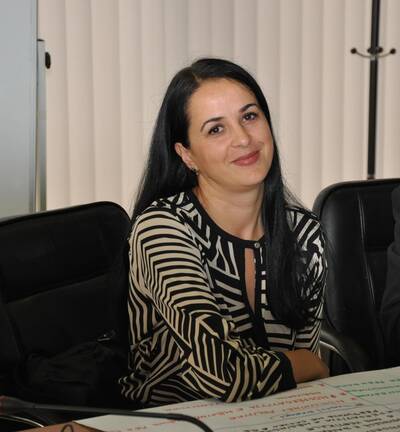 It is the unexpected outcomes from the project: encouraging schools to be more open and the friendships made over borders that have surprised and delighted Lulavere Behluli, Head of Division for Special Education Needs in the Ministry of Education, Science and Technology of Kosovo* and member of the Steering Board for the Joint EU/CoE Project “Regional Support for Inclusive Education”. But she was also fascinated by some very practical results such as schools acquiring skills in drafting and implementing of projects.
It is the unexpected outcomes from the project: encouraging schools to be more open and the friendships made over borders that have surprised and delighted Lulavere Behluli, Head of Division for Special Education Needs in the Ministry of Education, Science and Technology of Kosovo* and member of the Steering Board for the Joint EU/CoE Project “Regional Support for Inclusive Education”. But she was also fascinated by some very practical results such as schools acquiring skills in drafting and implementing of projects.
Creating inclusive practices and culture takes time. But the first steps have been made and with continuous support, the countries of South East Europe are on the right path to achieving this goal, says Lulavere Behluli, Head of Division for Special Education Needs in the Ministry of Education, Science and Technology of Kosovo*.
For her, involvement in the Regional Support for Inclusive Education project provides an excellent opportunity for schools to familiarise themselves with the concept of inclusive education, and to create a culture of inclusion.
“Even more important is the fact that all of this comes as a result of their direct participation in practical workshops, conferences, meetings and study visits to European Union countries. Through sharing experiences and materials with other schools, the project has helped schools to be more open and to look beyond their immediate circle through various forms of cooperation that were established by the project”, she says.
What according to you is the biggest benefit of the regional cooperation on inclusive education?
There are several benefits from this project. For instance, the friendships created between members from the different Beneficiaries, the chance to learn more about the educational systems in the region and the opportunity for exchanging positive experiences among us. Also important were the lectures from various experts in the field of inclusive education which have improved awareness about the importance of promoting inclusion as a concept. For the schools, the possibility for exchanging practical experiences on inclusion is of great benefit.
Which project activity do you believe has had the greatest impact?
From all the activities that were conducted within project, I believe that the most important is the capacity building of the schools on drafting and implementing projects based on their needs. This helps them directly by increasing their capacity in the future to research, draft and implement other projects at the school level, based on their exact needs.
Outside this project, how often do you have a chance to collaborate with other ministries from the region? In your opinion, is there sufficient awareness of the importance of having inclusive education throughout the South Eastern Europe region?
We have various possibilities to cooperate within the region and this happens continuously, but I consider that this project has met its objective very well in this regard. I think that throughout South East Europe steps have been made towards creating inclusive education, but, certainly, all of us have to continue working to create inclusive practices and culture, which takes time to be achieved.
Is there any personal experience - a somewhat personal impression about the impact of the project and its general value that you can share with us? Also, if you were given a chance to change something in order for the project to be even more successful, what would it be?
Overall I want to praise the importance of the project because it is a good opportunity to learn by exchanging experiences with others. It provides us with the opportunity to analyse and reflect on what we have created in our ministries, how appropriate these policies are and what needs to be changed or supplemented in order for inclusion to have an easier and quicker path towards practical implementation. Generally, I believe that the project was well designed and I would not change anything. However, I would like to point out that this field needs to continue to be supported even after the conclusion of this project.
* “This designation is without prejudice to positions on status and is in line with UNSCR 1244 and the ICJ opinion on the Kosovo Declaration of Independence”








